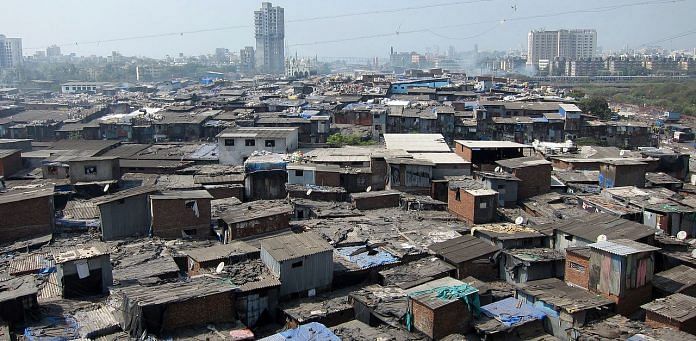Our all-time low private investment rates indicate that the greater part of this income sits as idle savings, ensuing minimal productivity.
The third-quarter GDP growth number of 7.2 per cent, after an extended slump that could be traced back to the demonetisation days, was greeted with relief across the nation, and rightfully so. India reclaiming the tag of the world’s fastest growing economy and the ensuing optimism could boost economic activity in coming months.
Economic growth is also undoubtedly the best cure for poverty. The past couple of decades have seen over half a billion people lifted out of abject poverty in just India and China.
The jubilation over economic growth, however, should not make us blind to a phenomenon that is ironically happening in parallel with poverty alleviation – unprecedented economic inequalities.
According to a survey this year by the international rights organisation Oxfam, about 73 per cent of the total wealth generated last year went to the richest 1%, while the poorest half of the Indian population, comprising almost 670 million people, saw their wealth increase by just 1 per cent.
This followed a research paper published last year by renowned economists Thomas Piketty and Lucas Chancel, showing that our income inequality had reached the highest levels seen since the British Raj days of 1922.
Also, not to be forgotten, our current poverty levels, set at just Rs 32 a day in rural areas and Rs 47 a day in urban areas, raise several questions on the practical effectiveness of our anti-poverty programmes.
These repeated insinuations on the growing chasm between the haves and have-nots should not be discounted, as history has time and again showed gross inequalities as harbingers of periods of extreme economic and political instability, with a fair share culminating in catastrophic social upheavals.
It is generally agreed upon by economists that, when compared to affluent households, the middle- and the lower-income homes spend a higher proportion of their earnings on short-term consumption, as most of their expenditure goes towards covering necessities. Their spending thus triggers immediate economic activity, and growth.
The earnings of the wealthier households, even if not as effective a driver of consumption, could be argued to possess similar or even better potential to stimulate the economy, if they are proficiently channelled towards investments. However, our all-time low private investment rates indicate that the greater part of this income sits as idle savings, leading to minimal productivity.
The lopsided concentration of wealth has resulted in the transfer of purchasing power from spenders to savers, thereby constricting demand, and has become a direct contributor to economic slowdown. This has inadvertently hurt the rich and the poor alike. The widespread discontentment caused by this economic stagnation is further exacerbated by the biggest challenge facing policymakers across the world today — rising unemployment rates, especially among the burgeoning youth.
The ever-increasing influence of the forces of hyper-globalisation, digitisation and automation in our age indicates a future of drastically improved productivity, and affluence for a select few, juxtaposed with fewer employment opportunities and lower wages for the vast majority. These are worldwide trends, and have resulted in the creation of disillusioned millions, who are becoming easy prey to the sway of demagogues.
They are paradoxically the key support bases of both the ascendant nationalist Right and the radical Left political movements. The parties from both ends of the spectrum, bereft of constructive solutions befitting our times, have already mounted severe assaults on democratic, social and economic liberal ethos by propagating various forms of social sectarianism, alongside economic protectionism and geographic isolationism.
Combating our growing inequalities is one of the keys to reversing this ominous trajectory. For this, the proponents of equitable economic growth recommend redistributive steps like the introduction of more aggressive direct transfer schemes, provision of various forms of basic incomes, and the introduction of progressive tax rates.
At first glance, these solutions may seem detrimental to the interests of those holding the levers of our economy, and our markets. Nevertheless, these steps might be the need of the hour, as even the few winners of our existing distributive system would struggle to maintain the gains in a swiftly approaching deeply fissured society that would be characterised by heightening political unrest and marked economic stagnation.
Anil K. Antony is the executive director of Cyber India, and the vice-president of Navoothan Foundation. His Twitter handle is @anilkantony




Great Content. Thank you Anil K Antony, keep up the good work.